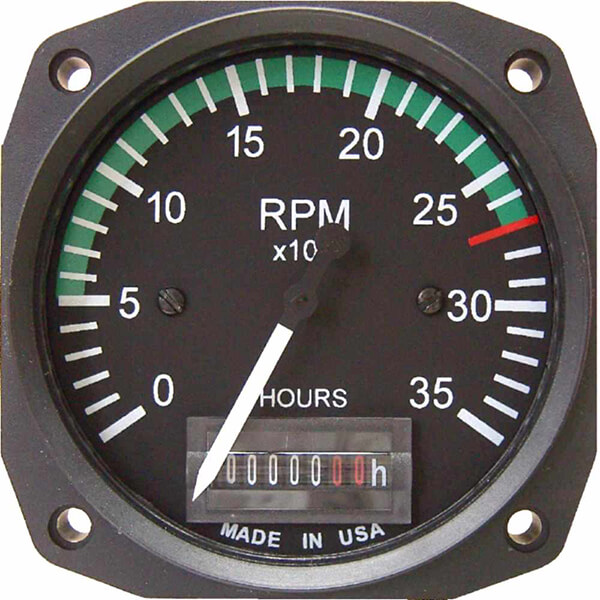Comprehensive Overview to Comprehending and Making Use Of a Tachometer Properly
Secret Reasons Having a Tachometer Is Important for Preserving Engine Health And Wellness and Efficiency
In the realm of automotive maintenance, the value of a tachometer can not be overstated - tachometer. This simple yet essential instrument plays a crucial duty in the maintenance of an engine's health and performance. By supplying real-time information on engine speed and RPM degrees, a tachometer provides invaluable understandings that straight affect the performance and durability of the engine. From avoiding over-revving to optimizing fuel intake, the applications of a tachometer are complex and essential for any automobile proprietor or lover. Why is this relatively straightforward device so important? Let's check out the essential reasons behind its critical duty in maintaining engine wellness and effectiveness.
Preventing Engine Over-Revving

To guard the engine from possible damages, it is imperative to execute procedures that prevent over-revving, a technique that can result in pricey repair services and lowered engine lifespan. Over-revving happens when the engine's rotational speed goes beyond the maximum limit set by the supplier, causing excessive tension on interior elements such as pistons, valves, and linking poles. This too much pressure can result in mechanical failures, consisting of curved valves, harmed pistons, and even tragic engine failure.
One effective procedure to protect against over-revving is the installment of a rev limiter. A rev limiter is a gadget that controls the optimum RPM (revolutions per minute) of the engine by either cutting off fuel circulation or stimulate to the engine when the pre-set restriction is reached. Additionally, educating motorists and operators on the importance of checking engine RPM via the tachometer can assist protect against unintentional over-revving. Normal maintenance checks to make certain the engine remains in ideal problem can also help in preventing over-revving occurrences and lengthening the engine's life-span. By adopting these preventative steps, the threat of engine damage because of over-revving can be substantially reduced.
Optimizing Gas Consumption
Efficient gas intake plays a critical duty in taking full advantage of the performance and sustainability of an engine. tachometer. Maximizing fuel intake not only aids in minimizing operational expenses but also minimizes the environmental effect of vehicle exhausts. By utilizing a tachometer to keep an eye on engine rate and adjust driving routines as necessary, vehicle drivers can attain far better gas effectiveness
Preserving a steady speed and avoiding abrupt velocities and slowdowns can considerably improve fuel economic situation. Additionally, correct equipment option based upon the tachometer readings ensures that the engine operates within its ideal range, leading to a lot dig this more efficient gas combustion.
Consistently keeping an eye on the tachometer can additionally aid identify any type of inadequacies or mechanical issues that might be affecting gas consumption. For example, a sudden increase in gas use without a corresponding change in driving behaviors can indicate a trouble that needs attention.
Tracking Engine Wellness
Keeping track of engine health and wellness is important for making sure optimum efficiency and longevity of the lorry. By using a tachometer to check engine rate, drivers can spot abnormalities that might indicate prospective concerns with the engine. A tachometer supplies real-time information on engine transformations per minute (RPM), enabling vehicle drivers to identify any unusual spikes or decrease in RPM that might signify problems such as misfires, damaged components, or engine getting too hot.

On a regular basis keeping an eye on engine wellness via making use of a tachometer allows chauffeurs to resolve problems quickly prior to they escalate and create significant damage. For instance, spotting a reduction in RPM might suggest fuel distribution issues or a blocked air filter, while an unexpected boost in RPM may indicate concerns with the transmission or exhaust system. By remaining cautious and receptive to adjustments in engine efficiency, chauffeurs can prevent pricey fixings and guarantee the total wellness and efficiency of their automobile.
Extending Engine Life-span
Ensuring the long life of an engine my response requires thorough maintenance methods and conscientious monitoring of essential efficiency indications. Expanding an engine's life expectancy is essential for decreasing overall lorry maintenance costs and staying clear of unanticipated malfunctions. A tachometer plays a substantial role in this facet by offering real-time information on engine rate, enabling chauffeurs and auto mechanics to make informed choices to avoid too much damage.

Additionally, routine maintenance based upon tachometer readings, such as prompt oil modifications and ignition system replacements, can substantially add to prolonging the engine's longevity. On the whole, including a tachometer right into routine engine tracking techniques is vital for maintaining the engine's health and effectiveness over the long term.
Conserving Money on Repairs
A tachometer helps in keeping an eye on the engine's RPM (transformations per minute), enabling drivers to run within the recommended range. By remaining within these optimal RPM degrees, extreme stress on the engine can be stayed clear of, reducing the likelihood of pricey repairs due to straining the engine.
In addition, by utilizing the information from a tachometer to practice smooth velocity and deceleration, vehicle drivers can lengthen the lifespan of try this out their car's parts, inevitably conserving cash on maintenance and substitutes. Generally, the insights given by a tachometer encourage motorists to make enlightened choices that can avoid unnecessary wear and tear on the engine, leading to considerable price savings in the future.
Final Thought
To conclude, a tachometer plays a critical function in preserving engine health and effectiveness by preventing over-revving, optimizing fuel consumption, keeping track of engine health, prolonging engine life-span, and saving cash on repair services. It is an important device for making certain that the engine operates within secure limitations and carries out at its finest, eventually adding to the long life and general efficiency of the automobile.